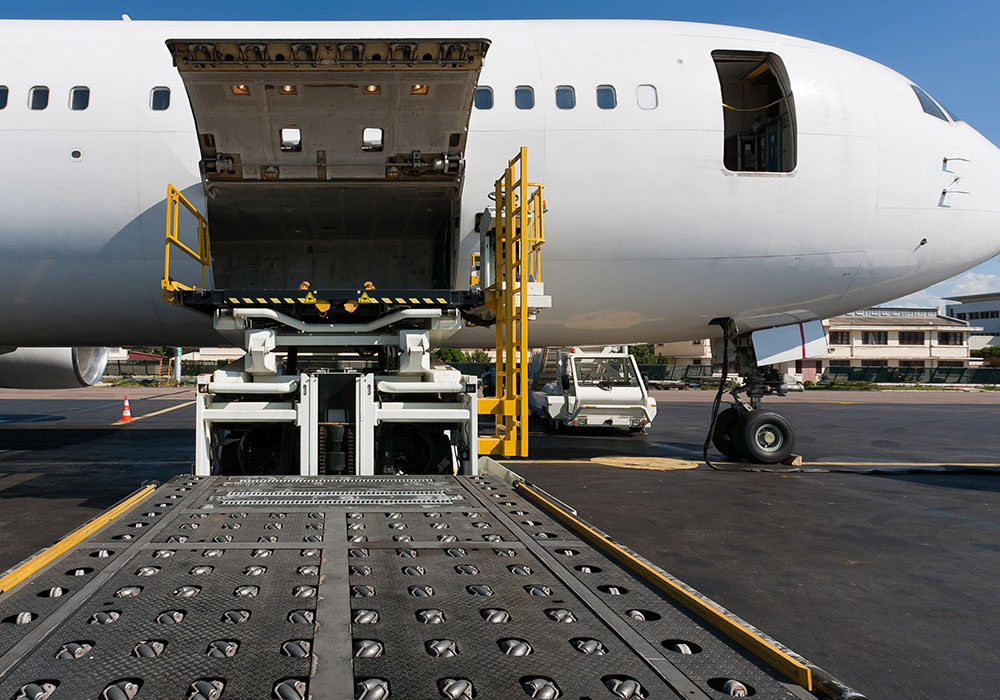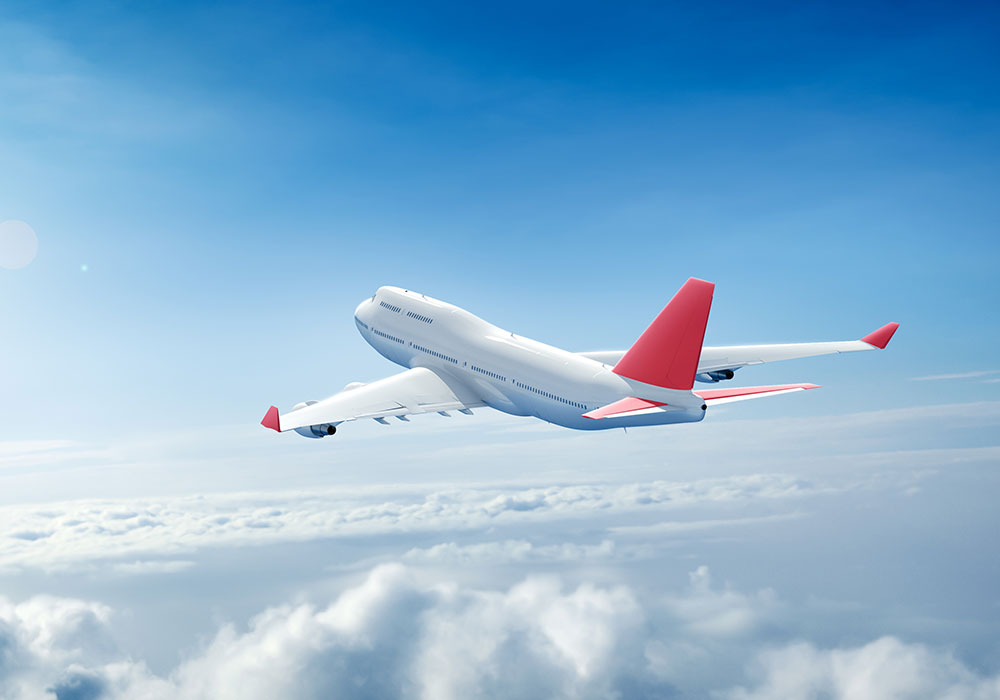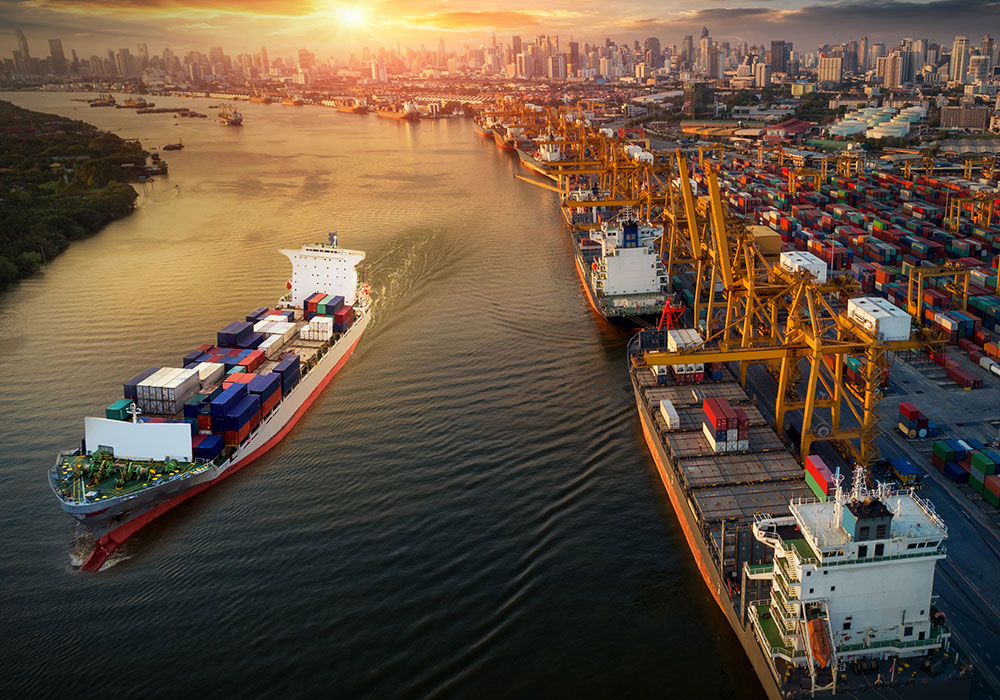Forms of Delivery
International Commercial Terms (INCOTERMS)
1. (EXW) Ex Works, Ex Warehouse (Delivery at the business whose name is specified)
Selling company is deemed to have fulfilled its obligation of delivery by making the goods ready for disposal of the buying company at the specified loaction of business (factory, warehouse, workshop, etc.). All expenses after the delivery belong to the buying company. In other words, if there is no provision to the contrary, the selling company is not obliged to load the goods to the vehicle, supplied by the buying company or perform customs processes. All expenses and risks, related to taking the goods from the institution of the seller company to the desired destination, belong to the buying company. This form of delivery includes minimum obligation for the seller company.
2. (FCA) Free Carrier (Delivery to the transporter at the place whose name has been specified)
It can be used for any method of transportation, including more than one phase of transportation. Selling company fulfills its obligation by delivering the goods whose formalities have been completed to the transporter whose name has been specified by the buying company at the place whose name has been provided by the buying company. Freight, risk and all expenses are born by the buying company.
If a location has not been specified for delivery by the buying company, selling company may choose the location it will deliver the goods to the transporter in an area whose boundaries have been determined previously.
This term may be used for any transportation process, including those with multiple vehicles. Other obligations are as those in FOB delivery.
3. (FAS) Free Alongside Ship (Alongside ship at a loading port whose name has been specified)
It is used only form marine transportation. Selling company is deemed to fulfill its obligation of delivery when it makes the goods ready at the loading port by the ship whose name has been provided by the buying company at the time, specified by the buying company. Freight, risk and all kinds of expenses, after this location and time, belong to the buying company.
4. (FOB) Free On Board (Delivery on the ship at the port of shipment whose name has been specified)
It is used only for marine transportation. Seller company is deemed to fulfill its obligation of delivery when the goods have passed the ship’s rail whose name has been provided by the buying company at the port of shipment at the time, specified by the buying company. Freight, risk and all kinds of expenses, after this location and time, belong to the buying company.
Selling company should inform the buyer company that the goods have been loaded with all details. Obligation of the buyer company is to make a transportation contract for the goods to be transported from the specified port of shipment, all expenses belonging to the buyer company and to assume all kinds of loss and damage to the goods during the period between the moment the goods have been delivered on the ship and the time the goods have reached the destination point.
5. (CFR) Cost and Freight (Delivery with freight paid at the port of destination whose name has been specified)
It is used only for marine transportation. Goods are delivered to the buyer company as transportation contract made and its freight paid by the seller company. Risk of the goods belong to the buyer company the moment the goods have passed the ship’s rail at the port of shipment.
6. (CIF) Cost Insurance and Freight (delivery with freight and insurance Premium paid at the destination port whose name has been specified)
It is used only for marine transportation. Responsibility of the seller company ends at the deck of the ship. Its difference from CFR is that Insurance Premium also belongs to the seller company. However, this insurance encompasses minimum risks. If the buyer company wants special risks to be covered by insurance, it has to have these issues included in the contract, it makes with the seller company. Insured value should be 10% more than the contract amount.
7. (CPT) Carriage Paid To (Delivery to the destination place whose name has been specified with freight paid)
It may be used for any method of transportation, including more than one transportation phases. Seller company delivers the goods to the buyer company at the destination point whose name has been specified with freight paid. If more than one carrier is used up to the specified place of delivery, risk is transferred from the seller company to the buyer company when the goods are delivered to the first carrier.
Risk of loss and damage to the goods and also all the additional expenses which might arise from the incidents which might occur after this delivery process are transferred from the seller company to the buyer company after the goods are transferred to the carrier.
Seller company will provide the information, for the insuring of the goods, to the buyer company. Responsibility of the buyer company is to obtain the necessary import permit and authorization documents, all expenses belonging to the buyer company.
CFR may be used for marine transportation and CPT may be used for land and other forms of transportation.
8. (CIP) Carriage and Insurance Paid To (Delivery to the destination place with freight and insurance paid)
It may be used for any method of transportation, including more than one transportation phases. Seller company also assumes to have load insurance made and to pay its premium in addition to its obligations in CPT term.
Carriage and Insurance Paid To delivery term describes that the seller company has the same obligations as in the CF term but also has to provide load insurance for the buyer company against the risk of loss and/or damage during transportation of the goods. Seller company makes the insurance contract and pays the insurance premium. Other obligations of the buyer company are as in CF form of delivery.
CIF is used for marine transportaiton and CIP is used for land and other transportation.
9. (DAF) Delivered at Frontier (Delivery at the frontier at the place whose name has been specified)
Seller company is deemed to fulfill its obligation of delivery by making the goods with import formalities completed, at the location at the border whose place has been specified and before the customs of the neighbor country, ready for the disposal of the buyer company. The term ‘border’ may be used for the border of any country, including that of the exporting country. Therefore, it is of great importance that which border is meant is specified by providing the name of the location. It is used primarily for Railway and Highway transportation. Freight belongs to the buyer company from the point, specified at the border. Seller company does not have any obligations regarding expenses and insurance of transportation from the border.
10. (DES) Delivered Ex Ship (Delivery on boat at the port of destination whose name is specified)
It is used only for marine transportation. Seller company is deemed to fulfill its obligation of delivery by making the goods ready for the disposal of the buyer company at the board of the ship before customs at the port of destination whose name has been specified. All risks and expenses up to this point belong to the seller company.
11. (DEQ) Delivered Ex Quay (Delivery at the quay with Customs Tax paid at the port of destination whose name has been specified)
Delivery at the quay term is used only for Marine transportation or if the goods will be delivered by unloading from the ship to the quay at the port of destination in transportation with multiple vehicles.
Obligation of the seller company ends when the goods are ready for the disposal of the seller company on the quay. Seller company assumes all risks and expenses, including taxes, duties and other fees, related to the transportation of the goods to that point. To whom the responsibility of clearing the goods from the customs will belong to is specified by writing additional words next to the DEQ term. For example, taxes and customs clearance expenses are born by the exporter company in DEQ duty paid and these expenses belong to the importer company in DEQ duty unpaid.
12. (DDU) Delivered Duty Unpaid (Delivery at the place of destination without customs taxes paid)
According to this term which may be used for any form of transportation, seller company fulfills its obligation by making the goods ready for the disposal of the buyer company at a place whose name has been specified in the country of import. Seller company assumes all risk and costs up to that point and costs and risks, related to taking care of customs formalities, excluding taxes, duties and other formal expenses during the actual import. It is delivery of the goods, their taxes unpaid, at the specified place in the country of the buyer company .
This form of delivery is used for highway, railway and airway transportation but not marine transportation.
13. (DDP) Delivered Duty Paid (Adı belirtilen varış yerinde gümrük vergisi ödenmiş olarak teslim)
Accroding to this term which can be used for any form of transportation, seller company is deemed to fulfill its obligation of delivery by making the goods ready with customs clearance for the disposal of the buyer company at the place whose name has been specified in the country of import. Seller company assumes all kinds of risks and costs up to that point. It is delivery of the goods with their taxes paid at the place specified in the country of the buyer country.
Seller company has to assume all risks and expenses, including the necessary taxes, duties and other fees for the goods to be transported up to that point and their customs clearance. The term DDP brings as much obligation to the seller as EXW brings as little obligation.
SOME ABBREVIATIONS, PLACED NEXT TO SOME TERMS:
STOWED : Stowed, FOB Stowed : Stowing expenses belong to the seller.
FO : Free Out: Excluding unloading expenses.
FIO : Free in and out : Excluding loading and unloading expenses.
FIOS : Free in and out and stowed : Excluding loading, stowing and unloading expenses.
FIOT : Free in and out and trimmed : Excluding the expenses of loading, stowing loads by balancing and unloading.
LANDED : Disembarked, unloading expenses included in freight.




